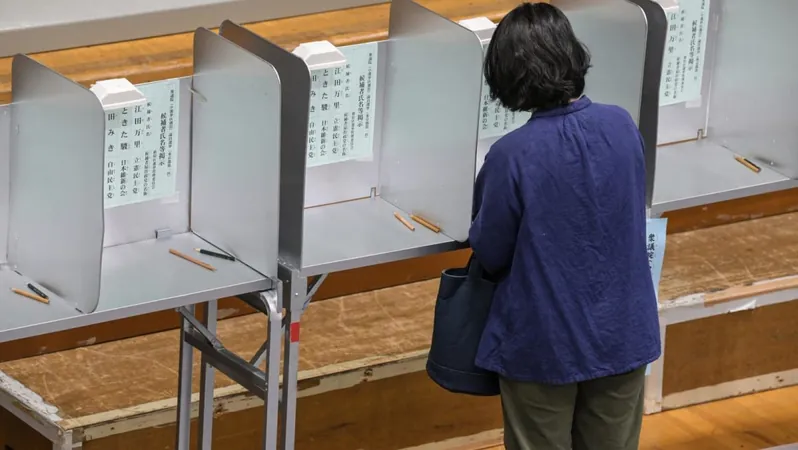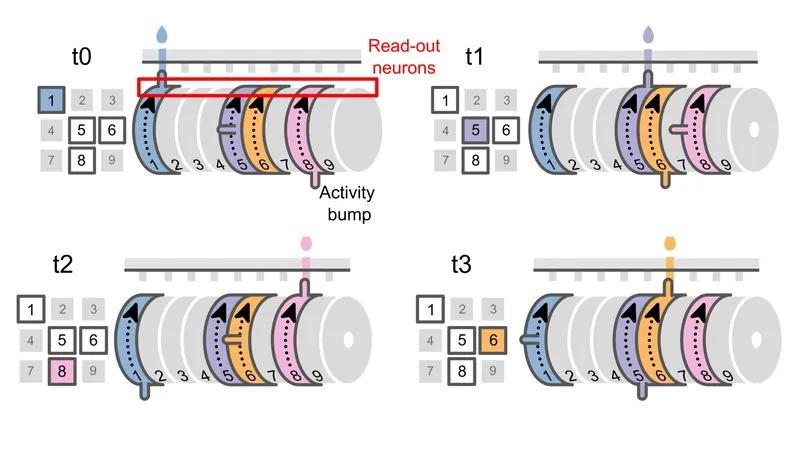
Japan's Election Showdown: Will Voter Fury Oust PM Ishiba's Coalition?
2024-10-26
Author: John Tan
TOKYO: A Crucial Decision
On Sunday, October 27, Japan's voters flocked to the polls, facing a crucial decision that may determine the fate of Prime Minister Shigeru Ishiba's government. This election is expected to serve as a referendum on a coalition besieged by a funding scandal and rising inflation—issues that could signal the end of an era for Ishiba's Liberal Democratic Party (LDP), which has dominated Japanese politics for nearly a decade.
Predicted Setbacks for LDP
Opinion polls indicate that the LDP, along with its long-time ally Komeito, is on track for a significant electoral setback, potentially losing its parliamentary majority. This predicament arises at a time when the cost of living has surged and tensions with neighboring China have escalated, further souring public sentiment.
Power-Sharing Challenges
Should the coalition lose its majority in the lower house, it would thrust Ishiba—who has held office for only a month—into difficult power-sharing negotiations with smaller parties. This scenario could create a degree of instability in policymaking, although current forecasts suggest that the LDP is unlikely to be completely ousted from power.
Expert Opinions on Leadership Challenges
Political expert Jeffrey Hall from Kanda University of International Studies noted, "Ishiba will face considerable challenges as a leader if he must rely on coalition partners, forcing him to make compromises that may not align with his party’s agenda."
Forecasts and Seat Predictions
Recent surveys, including one by Asahi newspaper, predict that the LDP could shed as many as 50 of its 247 seats, while Komeito may fall below the 30 seats threshold, leaving the coalition with less than the crucial 233 seats needed for a majority.
US Presidential Election Context
With the imminent US presidential election only nine days away, Japan's election has raised questions about Ishiba's decision-making strategy, particularly regarding the LDP’s scandal involving unreported donations. Although Ishiba has dismissed the donations issue as resolved following the expulsion of certain LDP members, experts warn that appointing disgraced politicians to government roles could further alienate voters.
Emerging Coalition Partners
As potential coalition partners emerge, the leading candidates appear to diverge sharply from the LDP's policies. The Democratic Party for the People (DPP) has advocated for halving Japan's 10 percent sales tax until real wages increase—a viewpoint not supported by the LDP. Meanwhile, the Japan Innovation Party has called for stricter rules on political donations to address corruption.
Economic Concerns at the Forefront
Additionally, economic concerns take center stage among the electorate. Polls conducted by public broadcaster NHK reveal that nearly 40 percent of voters prioritize economic issues and the rising cost of living. Specifically, 28 percent are advocating for tax cuts, while 21 percent seek consistent wage increases.
Political Party Promises
Various political parties have made pledges to raise wages, a populist move that could resonate with voters. However, analysts caution that these initiatives may place significant strain on smaller businesses already grappling with inflation and increasing operational costs.
Conclusion: The Pulse of a Nation
As Japan stands on the brink of a potential political upheaval, the results of this election are more than just numbers; they represent the pulse of a nation confronting economic challenges and demanding accountability from its leaders. All eyes will be on the outcome, as failing to heed the warnings of the electorate could have lasting consequences for Ishiba and the LDP.



 Brasil (PT)
Brasil (PT)
 Canada (EN)
Canada (EN)
 Chile (ES)
Chile (ES)
 España (ES)
España (ES)
 France (FR)
France (FR)
 Hong Kong (EN)
Hong Kong (EN)
 Italia (IT)
Italia (IT)
 日本 (JA)
日本 (JA)
 Magyarország (HU)
Magyarország (HU)
 Norge (NO)
Norge (NO)
 Polska (PL)
Polska (PL)
 Schweiz (DE)
Schweiz (DE)
 Singapore (EN)
Singapore (EN)
 Sverige (SV)
Sverige (SV)
 Suomi (FI)
Suomi (FI)
 Türkiye (TR)
Türkiye (TR)